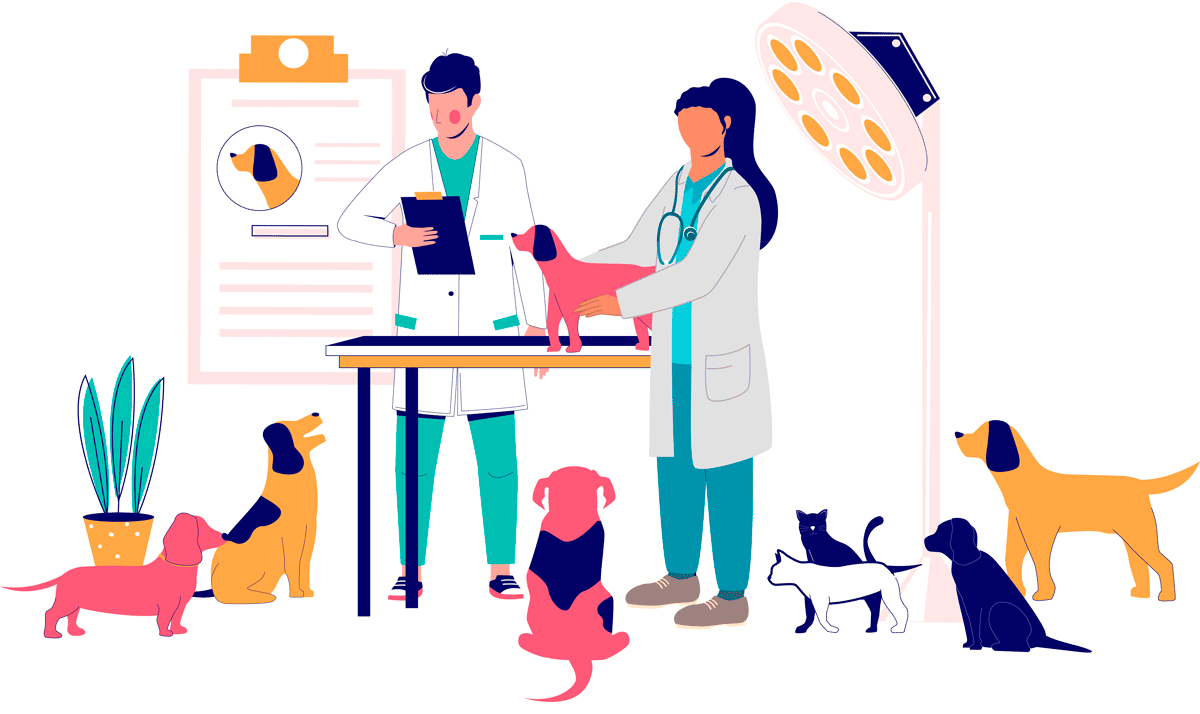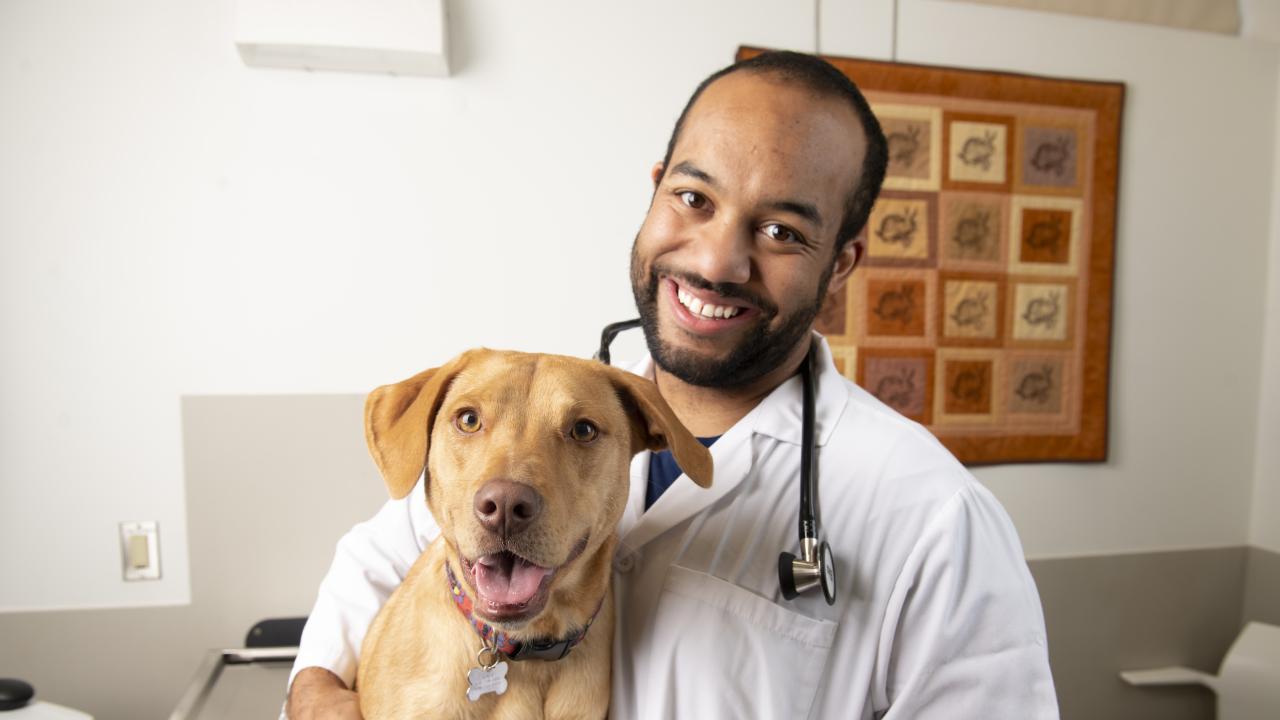Recognizing the Role of a Vet Oncologist in Your Animal's Cancer cells Care
A veterinary oncologist concentrates on identifying and treating cancer cells in animals. Their proficiency is essential for creating tailored treatment plans that resolve the unique demands of each family pet. Early medical diagnosis can greatly influence outcomes, making their role much more essential. Understanding the numerous treatment choices and how these specialists work together with primary vets is essential. What methods do they utilize to improve your family pet's lifestyle during this difficult time?

What Is a Vet Oncologist?
A veterinary oncologist is a specialized veterinarian who concentrates on treating and identifying cancer in pet dogs. These experts have sophisticated training in both vet medicine and oncology, enabling them to comprehend the complexities of cancerous conditions in pets. Their expertise enables them to do a range of diagnostic procedures, including imaging methods and laboratory examinations, to properly recognize different sorts of cancers cells in pets.
Along with medical diagnosis, vet oncologists develop tailored therapy strategies, which may include surgical treatment, radiation treatment, radiation treatment, or palliative care. They function closely with animal owners to describe therapy options and possible end results, guaranteeing that families make informed decisions about their pets' care. Veterinary oncologists often team up with other vet experts and basic specialists, developing a comprehensive approach to pet health. By concentrating on cancer cells care, they play a vital duty in boosting the high quality of life for animals identified with malignancies.
The Importance of Very Early Medical Diagnosis and Therapy
Early diagnosis and therapy of cancer in animals substantially improve the chances of effective results and improved lifestyle. When cancer cells is recognized in its beginning, vet oncologists can carry out targeted interventions that might slow disease development and ease symptoms. This aggressive method enables better administration of the illness, possibly bring about longer survival times and boosted convenience for the family pet.
In addition, early detection usually suggests that therapy alternatives may be much less intrusive and much more reliable, minimizing the total burden on both the family pet and its owner. Regular vet check-ups and recognition of subtle behavioral modifications are essential, as they can assist in prompt medical diagnoses. Proprietors must stay vigilant and consult their veterinarian at the initial indicator of problem. Pet Cancer Surgery. Eventually, a very early medical diagnosis encourages pet owners to make educated decisions about their pet's care, considerably impacting the general trip with cancer cells management
Treatment Options Provided by Vet Oncologists
When confronted with a cancer cells diagnosis, pet dog owners can explore a selection of treatment options supplied by vet oncologists that are tailored to the particular needs of their animals. These professionals usually use a combination of surgical treatment, chemotherapy, radiation therapy, and immunotherapy. Surgical treatment may intend to get rid of lumps or impacted cells, while radiation treatment utilizes drugs to eliminate and target cancer cells, usually carried out in cycles.
Radiation therapy concentrates on making use of high-energy rays to diminish tumors and minimize pain. Immunotherapy, a much more recent improvement, takes advantage of the family pet's immune system to combat cancer cells better. Extra encouraging therapies, such as pain management, dietary assistance, and palliative treatment, are additionally important elements of a detailed treatment strategy. By examining each case independently, veterinary oncologists ensure that the picked therapy lines up with the family pet's general health and great post to read cancer cells type, making the most of the opportunities of a positive outcome.
The Collaborative Technique: Collaborating With Your Main Veterinarian
Cooperation in between veterinary oncologists and key veterinarians is vital for giving substantial like animals detected with cancer. This partnership assures a detailed approach to treatment, integrating the specialized knowledge of oncologists with the continuous treatment given by main veterinarians. Together, they assess the family pet's wellness, establish customized therapy plans, and keep track of the family pet's progression throughout the cancer journey.
Main vets typically offer as the first factor of get in touch with, recognizing possible indicators of cancer and referring individuals to oncologists for specialized diagnostics and therapy choices. Following the oncologist's recommendations, the primary vet plays a key role in handling the pet's general health, including discomfort administration and helpful care.
Reliable communication between these experts cultivates a unified approach, enabling prompt interventions and modifications to treatment as required. This joint approach inevitably boosts the quality of care and assistance for animals and their owners during a challenging time.


Supporting Your Family Pet Via Cancer Cells Care
Supporting an animal with cancer cells treatment needs a detailed understanding of the physical and psychological challenges dealt with by both the animal and its proprietor. Caretakers need to be alert to the pet's changing requirements, which may consist of taking care of discomfort, changing diet regimens, and checking negative effects from therapies. Offering a comfortable, hassle-free environment is important for the pet dog's health.
Emotional assistance is just as important; proprietors ought to look for to continue to be favorable and engaged while understanding their very own sensations of stress and anxiety and sadness. Producing an assistance network, consisting of veterinarians, family members, and close friends, can minimize some burdens.
In addition, animal proprietors need to inform themselves about the particular sort of cancer cells and therapy alternatives available, promoting informed conversations with vet oncologists. Inevitably, a caring approach, incorporated with positive treatment and assistance, can improve the pet's lifestyle throughout this difficult trip.
Regularly Asked Questions
Just how Do I Pick the Right Vet Oncologist for My Animal?
Choosing the right veterinary oncologist entails investigating certifications, looking for referrals, assessing experience with details cancers cells, determining interaction designs, and visiting facilities to guarantee find more info a comfy setting for both the pet dog and proprietor during treatment.
What Should I Expect During the First Consultation?
Throughout the first appointment, the pet proprietor can anticipate an extensive assessment, discussion of case history, analysis tests, and a therapy plan overview. The veterinarian will certainly deal with concerns and supply support for ongoing care.
Are There Any Type Of Prices Connected With a Vet Oncologist's Providers?
Expenses related to news a vet oncologist's solutions can differ considerably based upon area, treatment complexity, and required diagnostics. Board Certified Veterinary Oncologist. Animal proprietors should anticipate expenditures for examinations, examinations, and prospective ongoing therapy strategies customized to their pet dogs' demands

Can My Pet Dog Still Obtain Regular Vet Care While Seeing an Oncologist?
Pet dogs can receive routine vet care while seeing an oncologist. Collaborating treatments guarantees comprehensive health management. Normal exams complement specialized cancer cells treatment, permitting holistic tracking of the pet's general wellness and resolving various other wellness concerns.
What Resources Are Readily Available for Animal Owners During Their Pet's Cancer cells Journey?
Numerous sources are available for pet owners navigating their family pet's cancer cells trip, consisting of support system, on-line discussion forums, instructional web sites, and economic assistance programs, all aimed at providing advice, psychological support, and practical information during this tough time.
A vet oncologist is a specific vet that focuses on treating and detecting cancer in pets. They function very closely with pet proprietors to clarify therapy options and possible end results, making certain that families make informed decisions about their pet dogs' treatment. When encountered with a cancer cells diagnosis, pet owners can discover a variety of therapy options provided by veterinary oncologists that are tailored to the particular requirements of their animals. Partnership between veterinary oncologists and key veterinarians is essential for giving comprehensive care to family pets diagnosed with cancer. Additionally, family pet owners should enlighten themselves concerning the certain kind of cancer and treatment options available, cultivating informed conversations with veterinary oncologists.